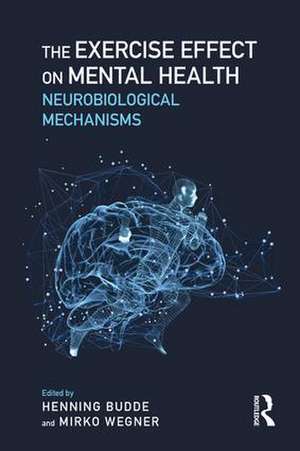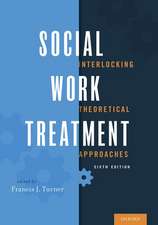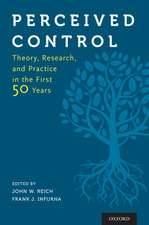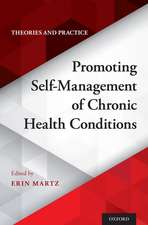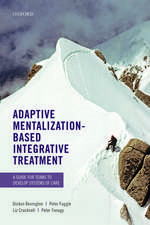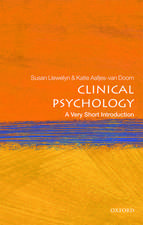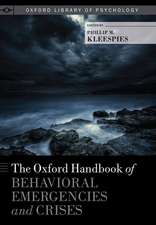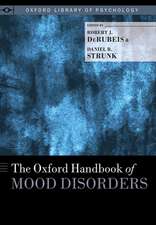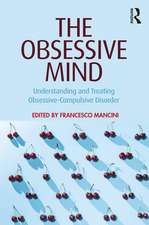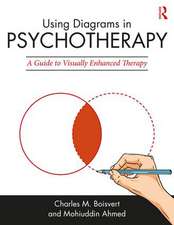The Exercise Effect on Mental Health: Neurobiological Mechanisms
Editat de Henning Budde, Mirko Wegneren Limba Engleză Paperback – 13 apr 2018
| Toate formatele și edițiile | Preț | Express |
|---|---|---|
| Paperback (1) | 633.24 lei 6-8 săpt. | |
| Taylor & Francis – 13 apr 2018 | 633.24 lei 6-8 săpt. | |
| Hardback (1) | 1114.06 lei 6-8 săpt. | |
| Taylor & Francis – 13 apr 2018 | 1114.06 lei 6-8 săpt. |
Preț: 633.24 lei
Preț vechi: 666.57 lei
-5% Nou
Puncte Express: 950
Preț estimativ în valută:
121.17€ • 126.83$ • 100.85£
121.17€ • 126.83$ • 100.85£
Carte tipărită la comandă
Livrare economică 31 martie-14 aprilie
Preluare comenzi: 021 569.72.76
Specificații
ISBN-13: 9780815348863
ISBN-10: 081534886X
Pagini: 542
Ilustrații: 24 Line drawings, black and white; 4 Halftones, black and white; 17 Tables, black and white
Dimensiuni: 152 x 229 x 28 mm
Greutate: 0.73 kg
Ediția:1
Editura: Taylor & Francis
Colecția CRC Press
Locul publicării:Oxford, United Kingdom
ISBN-10: 081534886X
Pagini: 542
Ilustrații: 24 Line drawings, black and white; 4 Halftones, black and white; 17 Tables, black and white
Dimensiuni: 152 x 229 x 28 mm
Greutate: 0.73 kg
Ediția:1
Editura: Taylor & Francis
Colecția CRC Press
Locul publicării:Oxford, United Kingdom
Public țintă
Professional Practice & DevelopmentCuprins
Preface: Editorial: The Exercise Effect on Mental Health Section 1: The benefits of exercise- A theoretical introduction (Mechanisms) 1. Epidemiology of common mental disorders Robert Kohn 2. Neurobiological changes as an explanation of benefits of exercise Terry McMorris & Jo Corbett 3. Causality in the associations between exercise, personality, and mental health Marleen DeMoor & Eco de Geus 4. Treating depression with exercise--an immune perspective Aderbal Silva Aguiar Junior & Alexandra Latini Section 2: Exerciseeffects in cognition and motor learning 7. Physical exercise and cognitive enhancement David Moreau 8. Exercise induced improvement in motor learning Nico Lehmann & Marco Taubert 9. Exercise effects in cognition and motor learning Megan Herting Section 4: Sport vs. exercise and their effects on emotions and psychological diseases 10. Exercise in the prevention, treatment, and management of addictive substance use Adrian Taylor & Tom Thompson 11. Morbid exercise behavior: Addiction or psychological escape? Attila Szabo, Zsolt Demetrovics & Mark D. Griffiths 12. Aerobic exercise in people with schizophrenia: From efficacy to effectiveness Davy Vancampfort, Simon Rosenbaum, Michel Probst & Brendon Stubbs 13. Exercise and anxiety disorders Jennifer Mumm, Sophie Bischoff & Andreas Strohle 14. Exercise and ADHD: Implications for treatment Lorna McWilliams 15. Can physical activity prevent or treat clinical depression? Nanette Mutrie, Katie Richards, Stephen Lawrie & Gillian Mead Section 5: Implications for the health sector and school 16. Prescribing Exercise for Mental Health: Mode and Dose-Response Considerations Brandon L. Alderman & Ryan L. Olson 17. Acute vs. Chronic effects of exercise on mental health Steven J. Petruzzello, Dan Greene, Annmarie Chizewski, Kathryn Rougeau & Tina Greenlee 18. Can physical activity prevent mental illness? Viviane Grassmann, George Mammen & Guy Faulkner
Notă biografică
Henning Budde, Ph.D., is Professor of Sports Science and Research Methodology at the MSH Medical School in Hamburg and an affiliating professor at the Lithuanian Sport University and Reykjavik University in Iceland. Henning finished his "Habilitation," the highest academic degree in Germany at the Humboldt-Universität zu Berlin, and also received an honorary doctor from the Lithuanian Sport University (LSU). His main research interest is exercise neuroscience and how these findings can be implemented in school settings. He is funded by the DFG (German Research Foundation) BU 1837/5-1 and BU 1837/5-2.
Mirko Wegner, Ph.D., is currently a Professor of Sport Psychology at Humboldt-Universität zu Berlin in Germany. His research interests focus on physiological and neurobiological responses to physical and psychological stress, and their affective, health-related, and cognitive consequences. He is an expert in motivation and self-regulation research and specialized in implicit motivational processes and their behavioral physiological associations. He applies his knowledge to the areas of health, physical education in school, and expert sport performance.
Mirko Wegner, Ph.D., is currently a Professor of Sport Psychology at Humboldt-Universität zu Berlin in Germany. His research interests focus on physiological and neurobiological responses to physical and psychological stress, and their affective, health-related, and cognitive consequences. He is an expert in motivation and self-regulation research and specialized in implicit motivational processes and their behavioral physiological associations. He applies his knowledge to the areas of health, physical education in school, and expert sport performance.
Recenzii
'This book provides an excellent vehicle for academic and practitioner experts to summarize the current state of the art in their fields of specialization. The cross-disciplinary themes of the book provide readers information that is vital to appreciate how physical activity influences neurological processes that underlie mental health.' - Phillip D. Tomporowski, Professor of Kinesiology, University of Georgia, USA
"The Exercise Effect on Mental Health is much more than selected evidence on the exercise effect on mental health. A team of authoritative experts addresses in a unique way the different facets of this complex relationship across the lifespan, in different populations and educational and clinical contexts, spanning from efficacy and underlying causal mechanisms to effectiveness and translational issues. The resulting 'big picture' is useful and enjoyable." - Caterina Pesce, University of Rome "Foro Italico"
"The Exercise Effect on Mental Health is much more than selected evidence on the exercise effect on mental health. A team of authoritative experts addresses in a unique way the different facets of this complex relationship across the lifespan, in different populations and educational and clinical contexts, spanning from efficacy and underlying causal mechanisms to effectiveness and translational issues. The resulting 'big picture' is useful and enjoyable." - Caterina Pesce, University of Rome "Foro Italico"
Descriere
The Exercise Effect on Mental Health contains the most recent and thorough overview of the links between exercise and mental health, and the underlying mechanisms of the brain.
